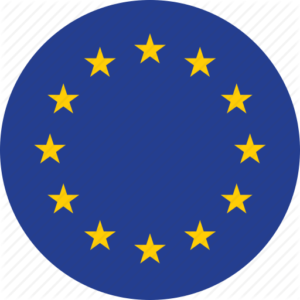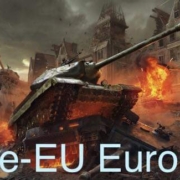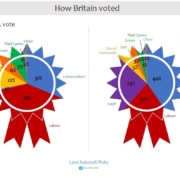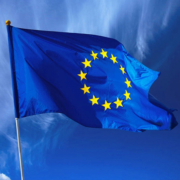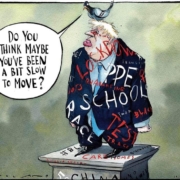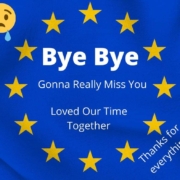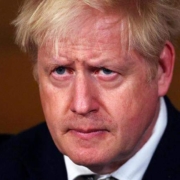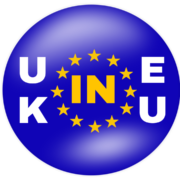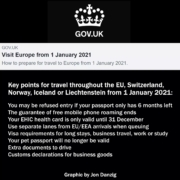TURNING BACK THE CLOCK ON PEACE IN EUROPE by Robert Braban
Although I first wrote this in 2016, the deteriorating situation and the 75th Anniversary of VE Day makes it appropriate to restate the indisputable case for supporting the EU.
TURNING BACK THE CLOCK ON PEACE IN EUROPE
As we face exit from the European Union, thus contributing massively to the USA and Russian objectives of its destabilisation, we should reflect on the folly of what we do.
It took more than one thousand years for the many nations of Europe with their constantly changing borders to get together and come up with a formula to bring stability to the continent and consign war, as a way of settling disputes, to the dustbin of history. It has taken just one dubious referendum to place it in jeopardy.
During the campaign leading to the referendum on 24th June 2016 a great deal of attention was given to the economy, the myth of sovereignty, immigration and a number of other topics that are really peripheral to the consideration that should have been at the centre of every discussion: the important imperative of peace in Europe. From 1189 until the formation of the EU, seven years was the longest period of peace between nations currently in the EU!
Without peace there is no economic progress nor is there any quality of life. Without peace, all other considerations are simply wishful thinking. A major attribute of the European Union is that it has always been a force for peace.
From the EU’s inception, Europe has enjoyed an unprecedented period of peace among members of the EU and those nations aspiring to membership. The force for peace has been that EU members have pursued a common purpose and have worked as a team for the progress of all. There have been many disagreements but they have always been settled across a table and not a battlefield.
If validation of common purpose as a force for peace is required, one need look no further than the former Yugoslavia. Since the 18th century, the states that eventually formed the Yugoslav state were periodically linked in loose confederation. They were volatile states with more to separate than combine. Despite this, these states were eventually to conjoin in a rough form of European Union.
The Yugoslav state existed from its foundation in the aftermath of World War II until its dissolution in 1992 amid the Yugoslav Wars. For those not familiar with Yugoslavia, it was a socialist state and a federation made up of six socialist republics: Slovenia, Croatia, Bosnia and Herzegovina, Serbia, Montenegro and Macedonia. In addition, it included two autonomous provinces within Serbia: Kosovo and Vojvodina. It was held together by common purpose and by settling differences across a table.
The striking lesson in validating ‘common purpose’ as a tool for peace is the outbreak of hostilities in Yugoslavia after the death of Marshal Tito.
As a cohesive nation under Tito, Yugoslavia was arguably like the European Union where common purpose inter alia, fostered peace among the severely disparate nations. When the cohesive alliance ended, so did peace. The same logic can be applied to the EU which has several nations that are certainly not natural allies. Peace among EU nations, now most of continental Europe, depends a great deal upon the EU remaining intact.
Britain should cherish that peace and Members of Parliament who place nation before party interests will view the Brexit vote of 38% of UK electors as ill-founded advice, the acceptance of which is damaging to the national interest. Tory Party unity is not more important than peace in Europe!
Those who attribute peace in Europe to NATO betray their total lack of understanding of NATO, it’s constitution and its purpose. NATO is a currently powerful force but as growing nationalism makes it ever more essential, that same political trend threatens its existence. It’s a deterrent force, but it’s also a reactive and not an initiating force. It has virtually no role in the maintenance of peace and good relations between EU members. It cannot and does not prevent local conflict. Moreover, serious political instability in the USA threatens the very existence of the alliance. A part of US motivation in supporting NATO has been a preference to fight their wars on someone else’s turf. That aspiration can no longer be fulfilled.
Of course NATO was instrumental in preventing Soviet aggression but it’s also true that NATO’s contribution to the period of peace between European nations was mostly restricted to the simple fact that some of the member nations were also members of the EU. Friends with a common purpose.
There are a lot of things in the EU that need reforming, but seventy years of peace alone would be worth every disadvantage the biggest Eurosceptic could list.
RL Braban
Wg Cdr Ret’d (RAF 1955-1990)
May 2016 (Rev January 2020)
